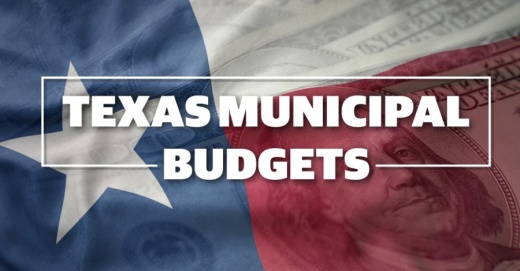With municipalities across the state adopting budgets and setting tax rates for the 2020-21 fiscal year, Austin-based nonprofit Texas Municipal League has been speaking with local governments about how the coronavirus has affected their planning process.
In an interview with Community Impact Newspaper on Sept. 2, JJ Rocha, grassroots and legislative services manager for TML, described the first mid-year survey the organization has done, in which 552 cities and municipalities responded to questions about budget preparation.
Q: What does the Texas Municipal League do, and how have you been communicating with cities on how they’ve been impacted by the coronavirus?
A: Texas Municipal League is a nonprofit organization of 1,160 member cities. We provide them with educational opportunities like training and conferences, and we offer them legal help. We have a legal hotline ... that is mostly used by smaller cities that cannot afford their own city attorney. We [also] have a legislative department and represent those cities during legislation.
We usually do not help cities with their budget, but this year with the coronavirus, we knew a lot of cities were going to have major shortfalls, and this is something nobody has experienced before, so we issued a mid-year fiscal conditions survey to ask coronavirus-pointed questions and see the revenue loss with sales, hotel and mixed beverages taxes. We usually have that survey in December. ... This is the first time we have asked cities what they are looking to do for the future.
Q: What have been some of the general concerns people have been bringing to the TML?
A: [Around] 67% of cities have lost sales tax revenue, but if you look at the average number of lost revenue, [13%], that paints a clearer picture. But that was in June, and we have seen a bounce-back in that. We have seen sales tax going up recently, which is great for the cities, but hotel occupancy taxes are not. We’ve heard mostly from the larger cities that the economy, like cancelling those major events and nobody is staying in hotels ... that economic effect has major losses to the city and its budget. In Austin, when they canceled South By Southwest, you do not have those people coming. The hotel and hospitality industries are worried about their small businesses in their cities.
Q: What are the concerns that TML has heard in regard to the coronavirus and the effect it has had on budgets?
A: We have not really heard too much from cities; it is all very unique to each city and what they are going through. Their local economy is very unique to each city, and their case numbers are different. What we have heard a lot is the effect of coronavirus is not really going to be felt on city budgets this year, but it will be felt in the next two to three years. They are going to have to start balancing their budgets. Property tax bills are due Jan. 31, and so when that happens, the citizens’ ability to pay that depends on if we are going to see foreclosures. That is what cities are looking ahead to. If we have foreclosures, it is going to be detrimental to the economy. Cities will have to face even tougher budgets in the next two or three years if that happens.






